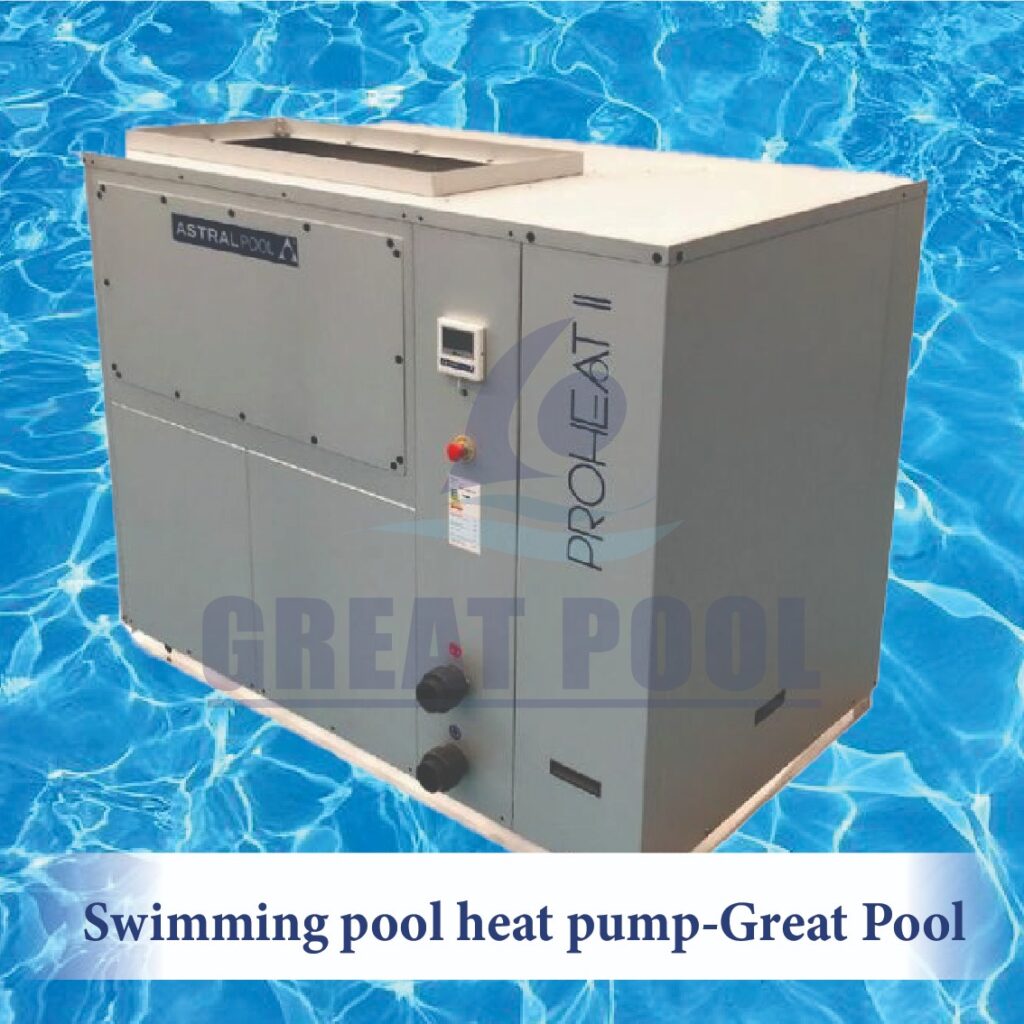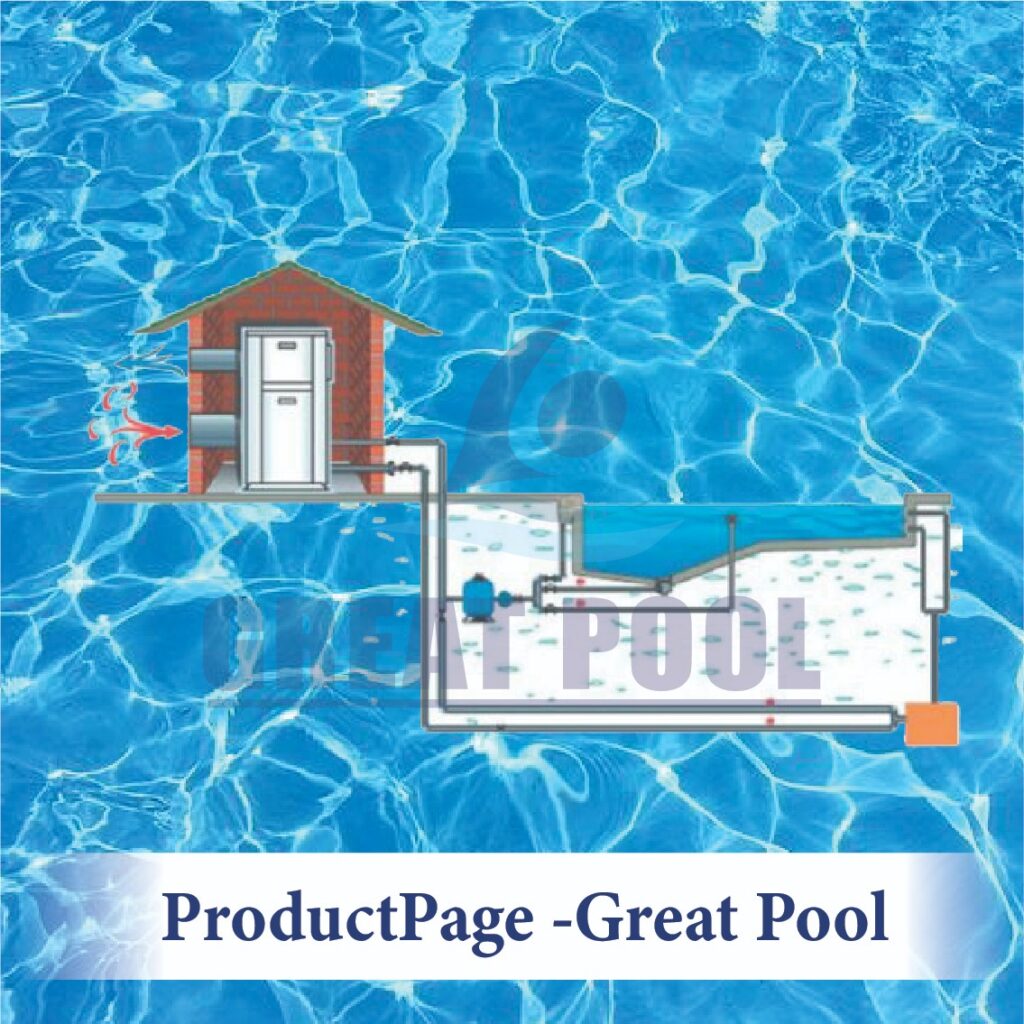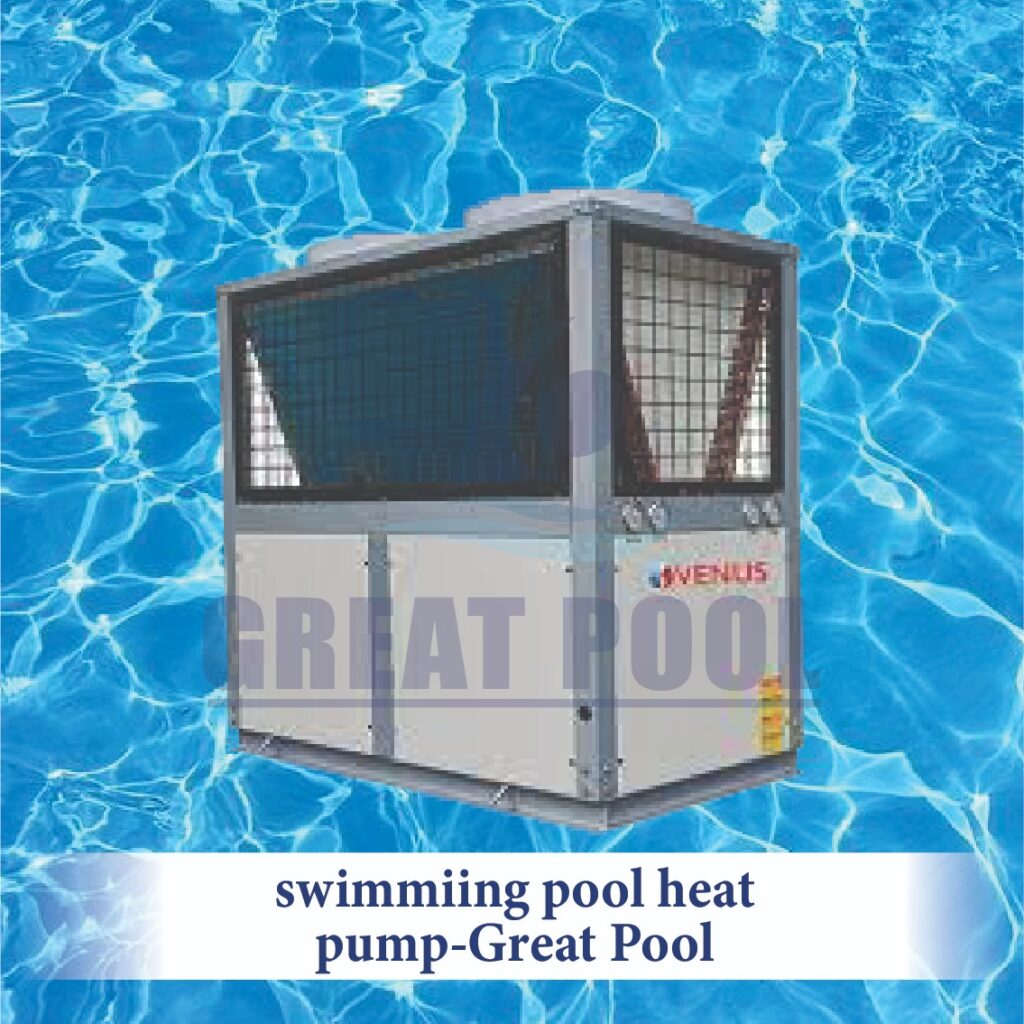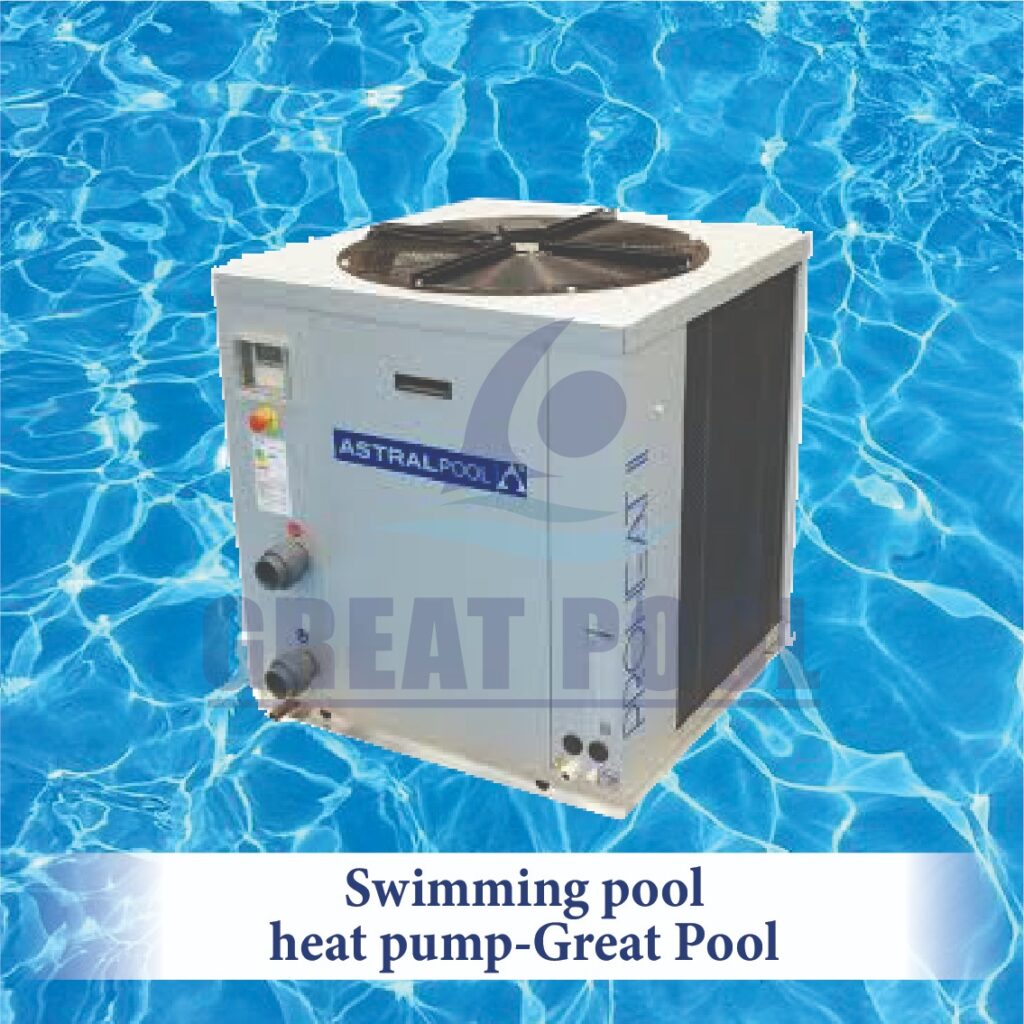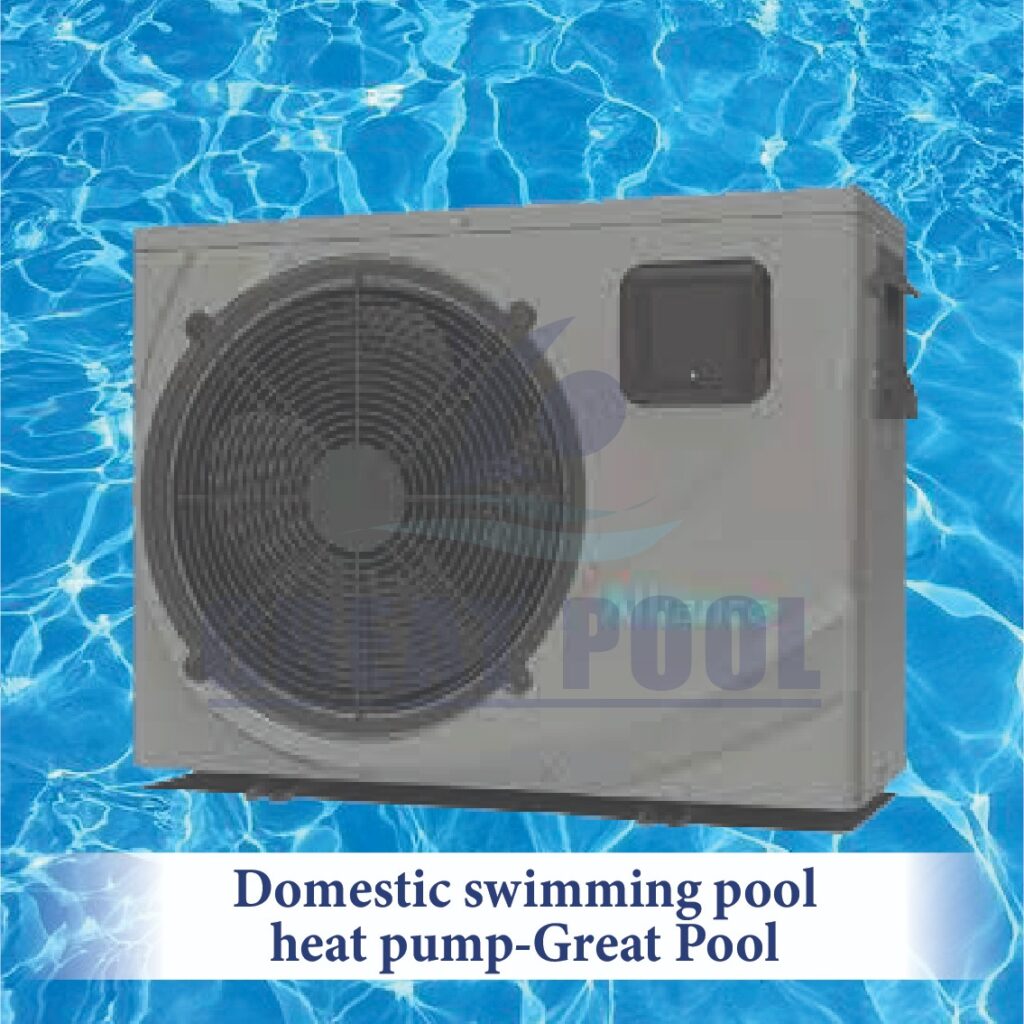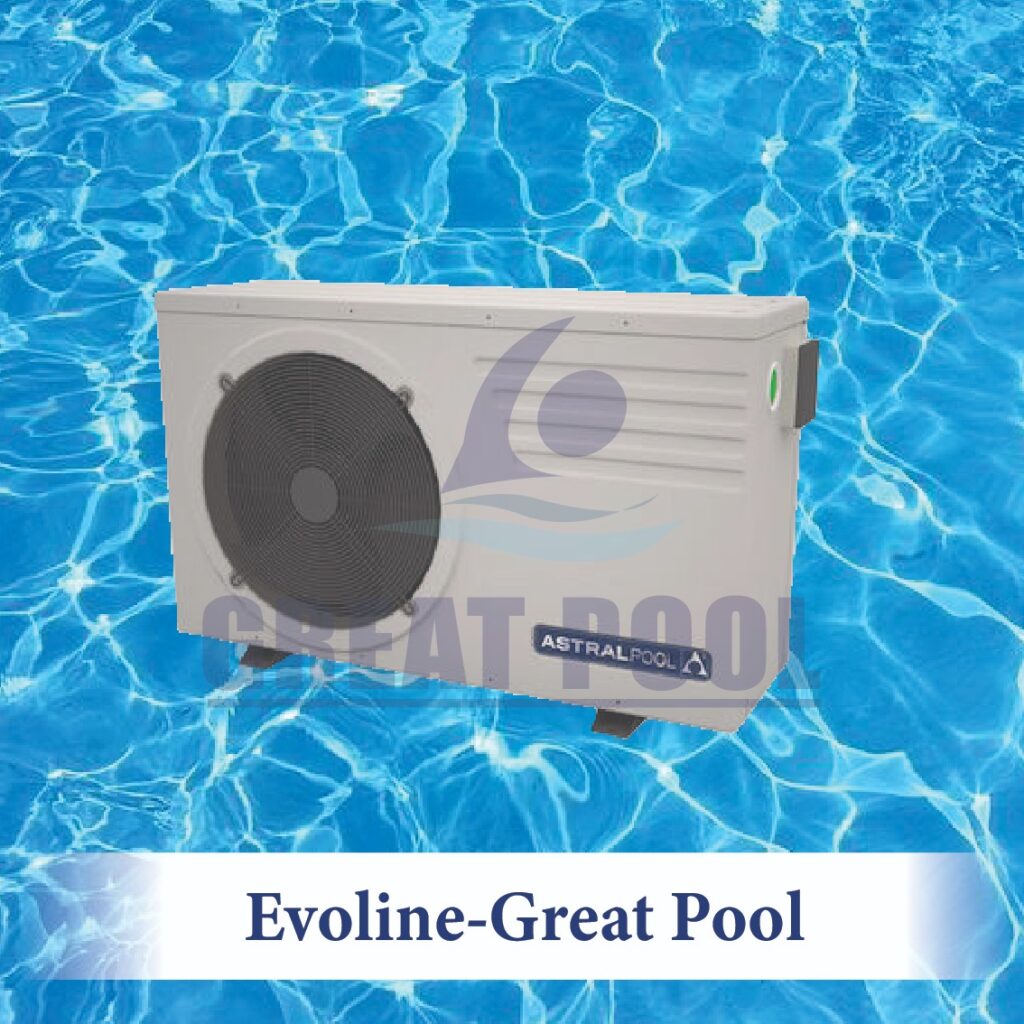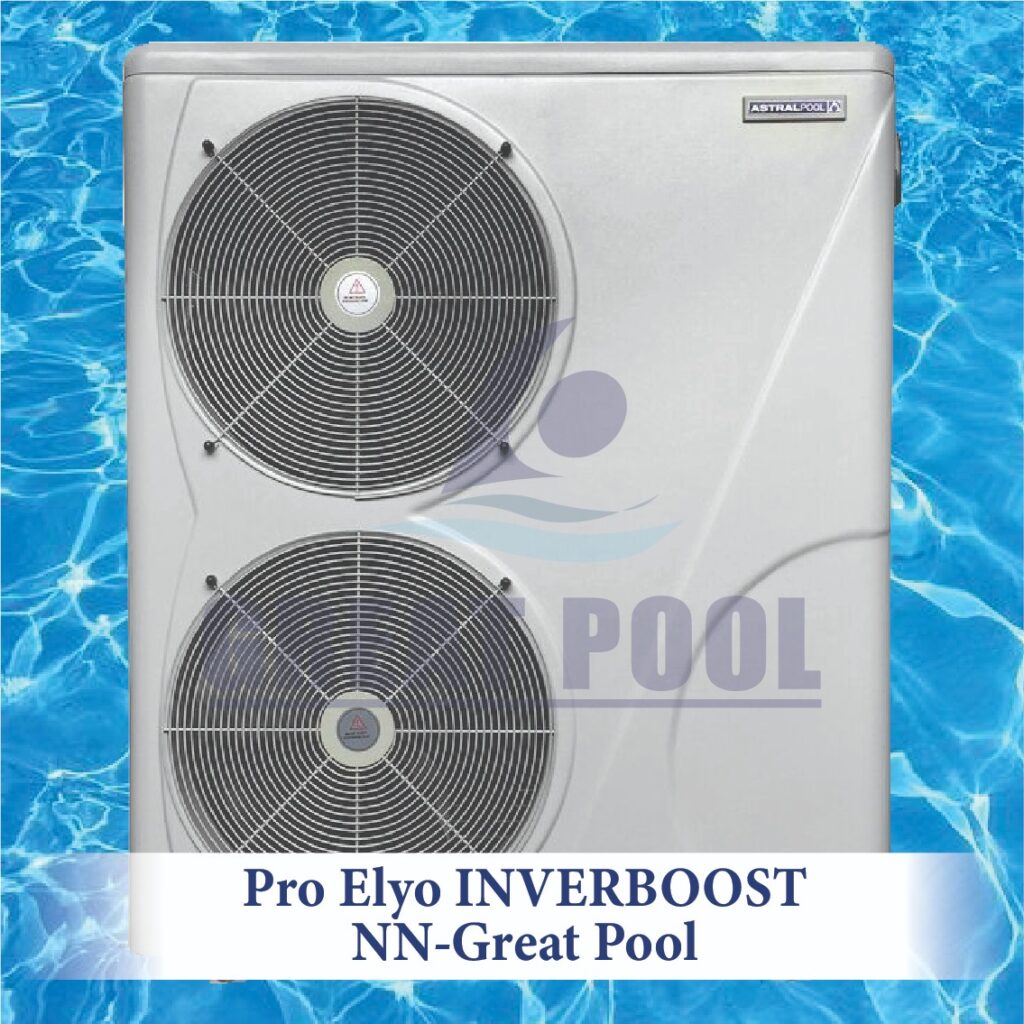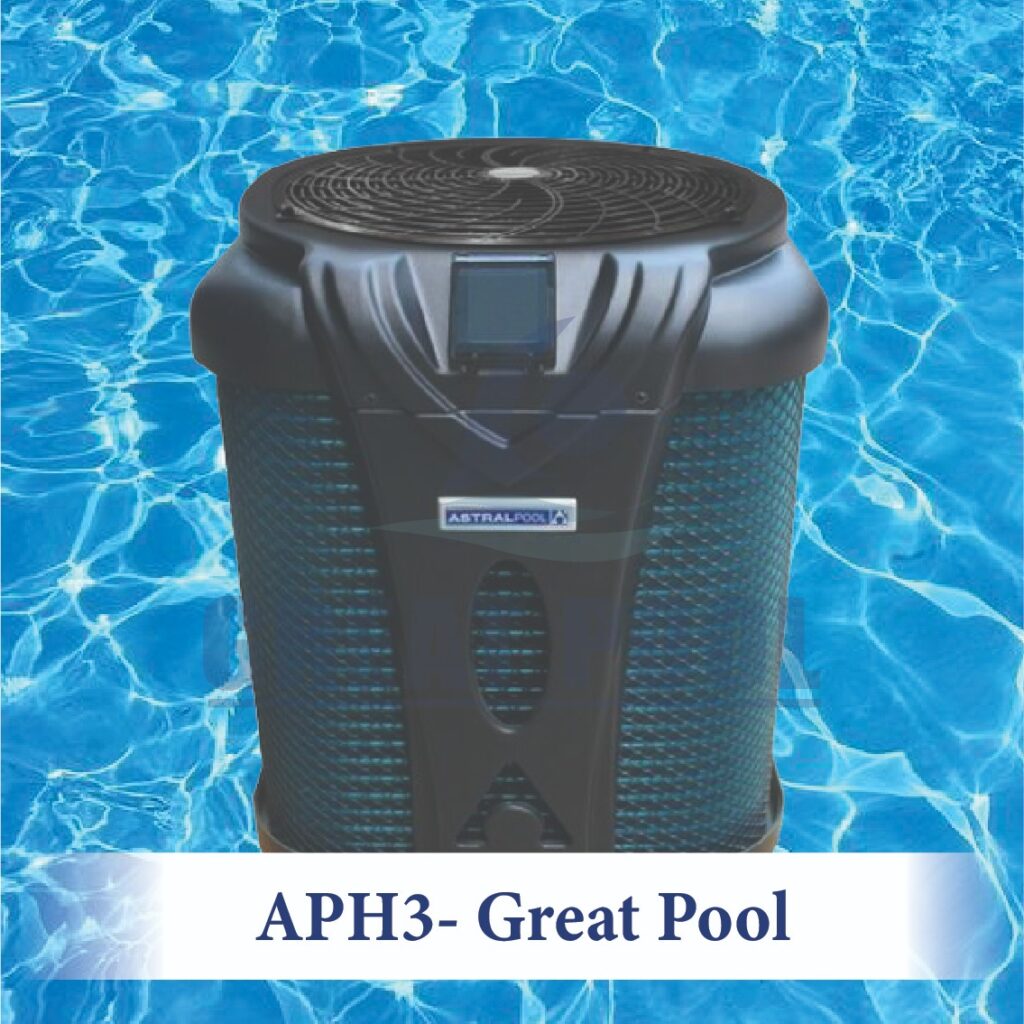Swimming Pool Heat Pump
Great Pool (Pvt) Ltd., was a established on April 19, 2018, deals in the business of construction of swimming pools of all sizes, ranging from domestic to commercial use, of any size, shape, and design. We believe in providing high-quality products at unbeatable prices. We supply all kinds of equipment related to swimming pools. We are also importers of swimming pool equipment like sand filters, chillers, dehumidifiers, heat pump and other accessories.
A heat pump is a device that uses a small amount of energy to move heat from one location to another. Heat pumps used for heating pools transfer heat from the outdoors into the water. Because they use heat that is already available and just move it from one place to another, they use less electricity.
Working of Heat Pump
The filter and heatpumpheat pump are both used while the pool water is heat pumped around by the pool heat pump. A fan on the heat pumpheat pump pulls outside air in and blows it over the evaporator coil. The evaporator coil’s liquid refrigerant absorbs heat from the ambient air and transforms into a gas as a result. The compressor then processes the warm gas in the coil. A highly hot gas is produced by the compressor, which then flows through the condenser. Heat from the hot gas is transferred via the condenser to the cooled pool water that is circulated through the heat pump. After then, the pool’s heated water is reintroduced. The heated gas passes through the condenser coil, becoming liquid once more before returning to the evaporator, where the process starts over.
Heat heat pump with more efficiency unlike reciprocal compressors found in ordinary units, scroll compressors are typically used in pool heat pumps.
HVAC unit As long as the outside temperature stays above the 45°–50°F range, pool heat pumps function effectively. Their efficiency decreases with increasing outside air temperature, increasing energy costs. However, this typically isn’t a problem because the majority of people utilize outdoor pools in warm and mild weather.
Selection of a Heat Pump
Heat pumps are more expensive than gas pool heat pumps, but because of their better efficiency, they often have substantially lower yearly running expenses. Heat pump pool heat pumps typically last longer than gas pool heat pumps with proper maintenance. As a result, we’ll end up saving more money overall. When selecting a heat pump pool heat pump, we should consider its:
- Size
- Efficiency
Sizing the Heat pump:
We should have a trained pool professional perform a proper sizing analysis for our specific pool to determine pool heat pump size.
A heat pump is complicated. In general, a heat pump is sized based on the pool’s surface area and the temperature difference between the water and the ambient air. The heating burden for outdoor pools is also influenced by other elements, such as wind exposure, humidity levels, and chilly nighttime temperatures. As a result, larger heat pumps will be needed for pools located in regions with higher average wind speeds at the pool surface, lower humidity, and cool nights.
Heat pumps are rated by the British thermal unit (Btu) output and horsepower (hp). Standard sizes include 3.5 hp/75,000 Btu, 5 hp/100,000 Btu, and 6 hp/125,000 Btu.
To calculate an approximate heat pump size for an outdoor swimming pool, follow these steps:
- Determine the desired swimming pool temperature.
- Determine the average temperature for the coldest month of pool use.
- Subtract the average temperature for the coldest month from the desired pool temperature. This will give we the temperature rise
- Calculate the pool surface area in square feet.
- Use the following formula to determine the Btu/hour output requirement of the heat pump:
Pool Area x Temperature Rise x 12
This formula is based on 1º to 1-1/4ºF temperature rise per hour and a 3-1/2 mile per hour average wind at the pool surface. For a 1-1/2ºF rise multiply by 1.5. For a 2ºF rise multiply by 2.0.
Determining Heat PumpEfficiency
The energy efficiency of heat pumpis measured by coefficient of performance (COP).The higher the COP number, the more efficient. The federal test procedure for heat heat pump sets the test conditions at 80 º F ambient dry bulbs, 63% relative humidity, and 80ºF pool water. COPs usually range from 3.0 to 7.0, which converts to an efficiency of 300%–700%. This means that for every unit of electricity it takes to runs the compressor, we get 3–7 units of heat out of the heat pump.
Installation and Maintenance
Our heat pump’s efficiency can be increased by proper installation and maintenance. It is recommended to have a skilled pool technician install the heat pump and handle any difficult upkeep or repairs, especially the electric hookup.
To find a maintenance schedule or suggestions, consult the owner’s manual. Our heat pump needs to be tuned up maybe once a year. A heat pump will probably needs routine maintenance from an air conditioning specialist due to the numerous moving and electrical parts that it has.
Pool heat pumps can last ten or more years with the right installation and upkeep.
Gas Pool Heat Pump
The most common method for heating pools continues to be gas-fired pool heat pumps. New gas-fired heat pump models are now available with substantially higher efficiency than earlier models. In contrast to heat pumps and solar pool heat pumps, they might not be the most economical choice depending on our climate and pool usage.
How They Work
Natural gas or propane is used in gas pool heat pumps. Water extracted from the pool is filtered before being delivered to the heat pump, which circulates the pool’s water. In the combustion chamber of the heat pump, the petrol burns, producing heat that is transferred to the water that is returned to the pool.
They are perfect for heating pools quickly. Gas pool heat pumps can therefore be a wise solution for pools that are only sometimes used. Gas pool heat pumps can maintain any required temperature independent of the weather or climate, unlike heat pump and solar pool heat pumps.
Selection of a Heat Pump
Heat pumps are more expensive than gas pool heat pumps, but because of their better efficiency, they often have substantially lower yearly running expenses. Heat pump pool heat pumps typically last longer than gas pool heat pumps with proper maintenance. As a result, we’ll end up saving more money overall. When selecting a heat pump pool heat pump, we should consider.
Sizing the Gas Heat pump:
We should have a trained pool professional perform a proper sizing analysis for our specific pool to determine pool heat pump size.
A heat pump is complicated. In general, a heat pump is sized based on the pool’s surface area and the temperature difference between the water and the ambient air. The heating burden for outdoor pools is also influenced by other elements, such as wind exposure, humidity levels, and chilly nighttime temperatures. As a result, larger heat pumps will be needed for pools located in regions with higher average wind speeds at the pool surface, lower humidity, and cool nights.
Heat pumps are rated by the British thermal unit (Btu) output and horsepower (hp). Standard sizes include 3.5 hp/75,000 Btu, 5 hp/100,000 Btu, and 6 hp/125,000 Btu.
To calculate an approximate heat pump size for an outdoor swimming pool, follow these steps:
- Determine the desired swimming pool temperature.
- Determine the average temperature for the coldest month of pool use.
- Subtract the average temperature for the coldest month from the desired pool temperature. This will give we the temperature rise
- Calculate the pool surface area in square feet.
- Use the following formula to determine the Btu/hour output requirement of the heat pump:
Pool Area x Temperature Rise x 12
This formula is based on 1º to 1-1/4ºF temperature rise per hour and a 3-1/2 mile per hour average wind at the pool surface. For a 1-1/2ºF rise multiply by 1.5. For a 2ºF rise multiply by 2.0.
Determining Efficiency of a Gas Pool Heat pump
Based on the Btu (British thermal unit) output, a standard test is used to assess the energy efficiency of gas pool heat pumps.
The ratio of energy input to useful output is known as the heat pump efficiency. For instance, a heat pump that operates at 80% efficiency uses $100 in fuel to produce $80 worth of useable heat. As a result, 20% of the gasoline is wasted.
On their nameplates, petrol pool heat pumps often list their efficiency percentage. The efficiency % can also be obtained from the manufacturer of a pool heat pump.
These petrol pool heat pumps range in efficiency from 89% to 95%. Table 1 displays the amount we may save for every $1,000 in annual pool heating expenses when compared to a 55% efficient gas pool heat pump (baseline). pump.
